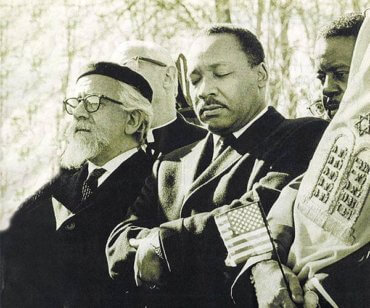
How Do We Come to Terms With The Haggadah’s Call for Violence?
Dear Jew in the City-
In the Haggadah, it states “Pour out Your wrath upon the nations that do not call out Your name.” Aren’t we supposed to be compassionate and non-violent? How do we come to terms with this difficult text?
Best,
Jocelyn
Dear Jocelyn-
Thanks for your question. The first thing one has to realize is that the line in question isn’t just some sentiment expressed by the authors of the Passover Haggadah. Rather, they’re two Biblical verses from the Book of Psalms. Psalms 79:6-7 reads:
Pour out Your wrath upon the nations that do not know You and upon the kingdoms that do not call in Your Name, for they have devoured Jacob and laid waste his habitation.
This sentiment is echoed by the prophet Jeremiah. (I say “echoed” because, while the Book of Jeremiah appears earlier in the Bible canon than Psalms, the prophet Jeremiah lived about 400 years after King David, the author of Psalms.) Jeremiah 10:25 reads:
Pour out Your wrath upon the nations that do not know You and upon the families that do not call in Your Name, for they have devoured Jacob; yes, they have devoured and consumed him, and have laid waste his habitation.
So, once the idea actually appears in your Bible – not once but twice – you have to give it a certain amount of credence. Nevertheless, this concept doesn’t sit well with many of us because we’re raised with the idea that we’re all God’s children and He loves us all (which is true; I discuss this more fully here). So why would we wish ill on others? What we have to understand is that context matters a lot. I’ll illustrate.
Let’s look at Psalms 97-98. Psalms 97:5 reads, “The mountains melted like wax at God’s presence.” However, Psalms 98:8 says, “Let the mountains sing for joy.” Mountains are a symbol for the mighty kings of various nations. So which is it? Will they melt like wax or sing for joy? The answer depends on context: those kings who insist on considering their own might to be supreme will ultimately be shamed and melt like wax; those who learn to subordinate themselves to God will ultimately join together in joyful song to Him.
The same is true regarding “pour out Your wrath.” We don’t pray that God arbitrarily wipe out other nations. So what’s the context here?
On Psalms 79:6, the commentary called Metzudas Dovid explains “Pour out Your wrath upon the nations that do not know You” to mean “Remove Your wrath from us and pour it out on the nations that don’t want to know You.” So the first thing we see is that the nations to whom this verse refers are not just ignorant of God, they’re willfully ignorant, which is a different matter entirely: they choose not to recognize God so that they may persist in their presumably-not-so-good ways.
The Radak also sheds some light on this verse. Regarding “the kingdoms that do not call in Your Name,” he says that we ask God to remove His wrath from us and to place it on those aforementioned nations because, even though we may sin (and therefore be deserving of some wrath), we still call in His Name. We may not be perfect – no human is – but at least we’re trying.
Furthermore, the Radak specifies that the reason these other nations deserve God’s wrath is because they dismantled Jewish sovereignty when they destroyed Jerusalem and exiled the Tribe of Judah. This sounds to me like only certain very specific nations are intended.
Which brings us to Psalms 79:7, “for they have devoured Jacob and laid waste his habitation.” The ibn Ezra explains that it wasn’t enough for these nations simply to ignore God, they felt the need to attack Israel, who did recognize God. So they’re not just people who choose not to know God, they’re overtly antagonistic to God and try to destroy those who do have a relationship with Him.
So, yes, in general we do prefer the paths of peace but context is important. After WWII, should we not have tried and executed Nazi war criminals? Who would say that “forgive and forget” is the appropriate course of action in the face of such atrocities? Similarly, the call of “Pour out Your wrath” is directed specifically at those nations that chose to self-identify as enemies of God and to commit unprovoked acts of brutality against us because of it.
Sincerely,
Rabbi Jack Abramowitz
JITC Educational Correspondent
If you found this content meaningful and want to help further our mission through our Keter, Makom, and Tikun branches, please consider becoming a Change Maker today.







